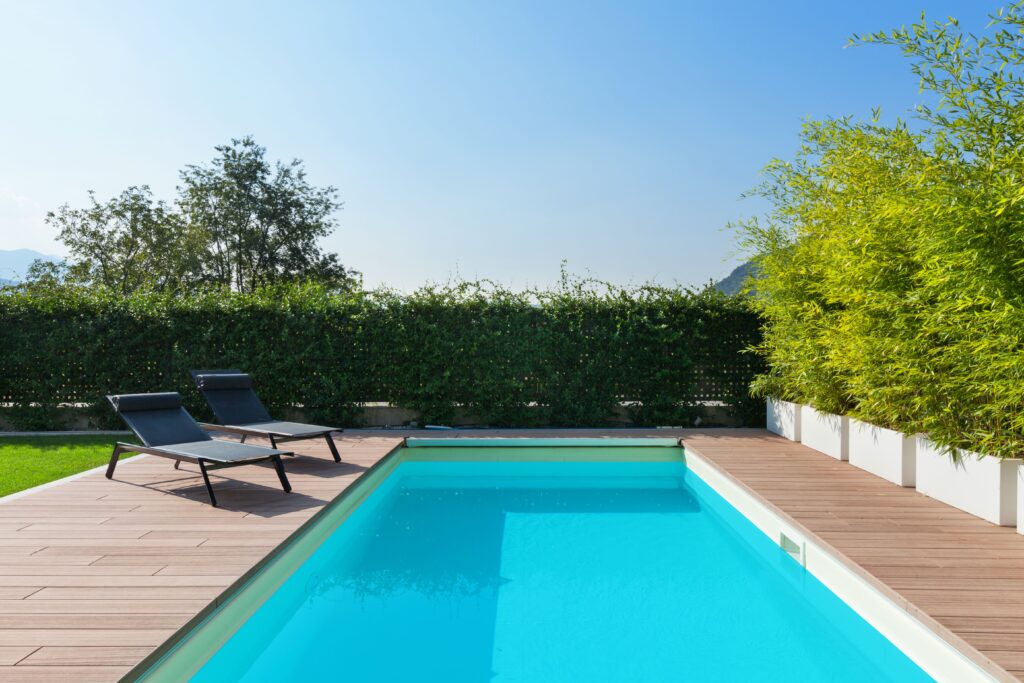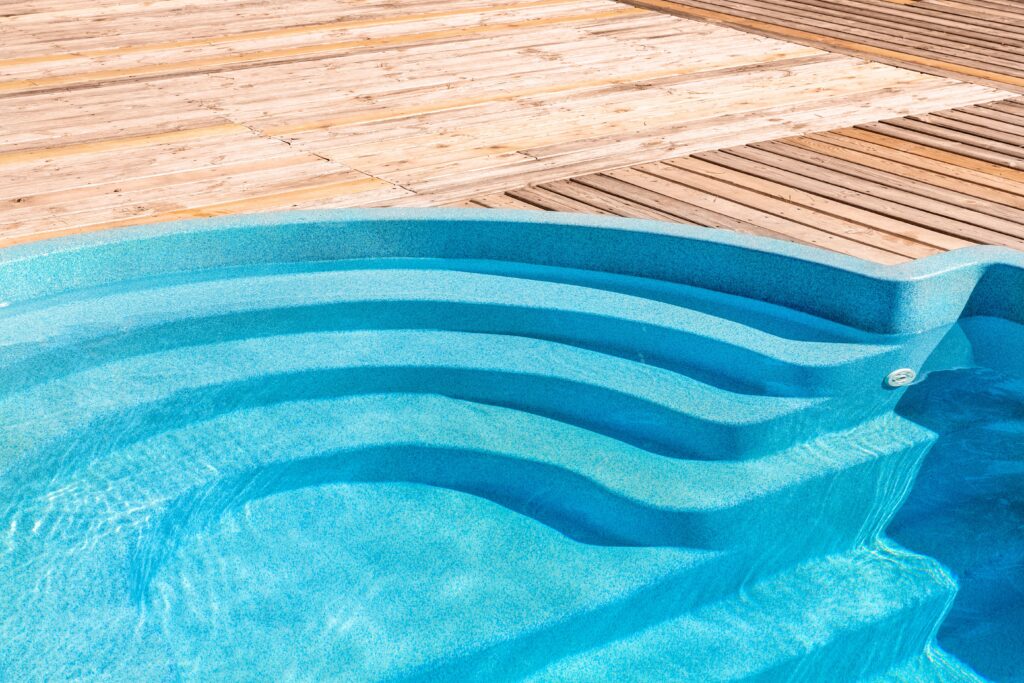Should I Get a Fiberglass Swimming Pool?
Fiberglass Swimming Pool
If you’re interested in a swimming pool then you’ll have three types to choose from: fiberglass, concrete, or vinyl liner. Each gives reason to purchase and install; however, fiberglass might just edge the other two in overall comparison. Here’s what to consider for a fiberglass swimming pool:
What are you looking for in a swimming pool?
Durability?
Fiberglass swimming pools last for a very long time. In fact, they really don’t have an expiration date. Reason being, there aren’t any changing variables with fiberglass. It’s a non-porous material, meaning impenetrable to water. Special chemicals are not needed to prevent algae or corrosion.
Rather, fiberglass prevents those unwanted things from occurring on its own. Often times, fiberglass’ durability comforts installation companies in providing lifetime warranties.
Convenience?
While the other two pool types (concrete and vinyl liner) require weekly, if not daily maintenance, fiberglass hardly requires any maintenance whatsoever. The lack of chemical usage has much to do with this. Ultimately, a fiberglass pool stays the same all throughout its “lifetime”.
What’s also convenient is the installation process. Fiberglass pool shells come pre-formed. They are created in the factory and transported from there to a customer’s home. General excavation, filtering and plumbing still have to be done, but from there the pool shell is placed in the ground. Rather than waiting months for a concrete pool to be installed and ready to swim in, a fiberglass pool can be fully installed and ready for action in days.
Appearance?
Should I Get a Fiberglass Swimming Pool?
Fiberglass swimming pools come in freeform style only. Freeform pools are curved and typically oval-shaped. Basically, you can’t purchase a rectangular-shaped pool or an “L” shaped pool if made out of fiberglass. That being said, freeform pools are most popular in backyards anyway. You will be somewhat restricted in terms of design and shape; however, fiberglass pools are still very appealing.
Cost?
Fiberglass pools will cost a hefty initial amount. After all, there is a price to be paid for a pool that could very well outlast your stay in your home. It will cost more up front than both concrete and vinyl liner pools. The main selling point for fiberglass is that you shouldn’t have to pay a penny beyond the initial cost.
Concrete pools will have to be renovated every 10 years. Resurfacing and re-tiling a concrete pool will cost over $10,000 each time. Vinyl liner pools will last 5-10 years before they will have to be replaced. Replacement will cost between $4,000-$5,000. Suddenly, a fiberglass pool looks pretty good doesn’t it? That is, if it didn’t already.
What about resale value?
Should I Get a Fiberglass Swimming Pool
Concrete pools will increase a home’s resale value most substantially, though, fiberglass will add some considerable value. Obviously, it depends on the condition of the pool and the buyer. It is easier to maintain the condition of a fiberglass swimming pool.
Whichever pool style you decide on, you’ll need pool tile. Fujiwa Tiles offers over 100 different designs in swimming pool tiles, each crafted for looks and durability. Contact Fujiwa Tiles today! And please visit our blog for additional helpful information.
FAQs
- How long do fiberglass pools last? Fiberglass pools are known for their durability and can last for several decades with proper maintenance.
- Are fiberglass pools expensive to maintain? No, fiberglass pools require minimal maintenance compared to concrete or vinyl liner pools, resulting in lower long-term costs.
- Can fiberglass pools be customized? While fiberglass pools typically come in freeform designs, there are various options for colors and finishes to suit your preferences.
- Do fiberglass pools require special chemicals? No, the non-porous surface of fiberglass prevents algae growth and corrosion, reducing the need for special chemicals.
- Are fiberglass pools suitable for all climates? Yes, fiberglass pools are suitable for a wide range of climates and are resistant to cracking and damage from freezing temperatures.



